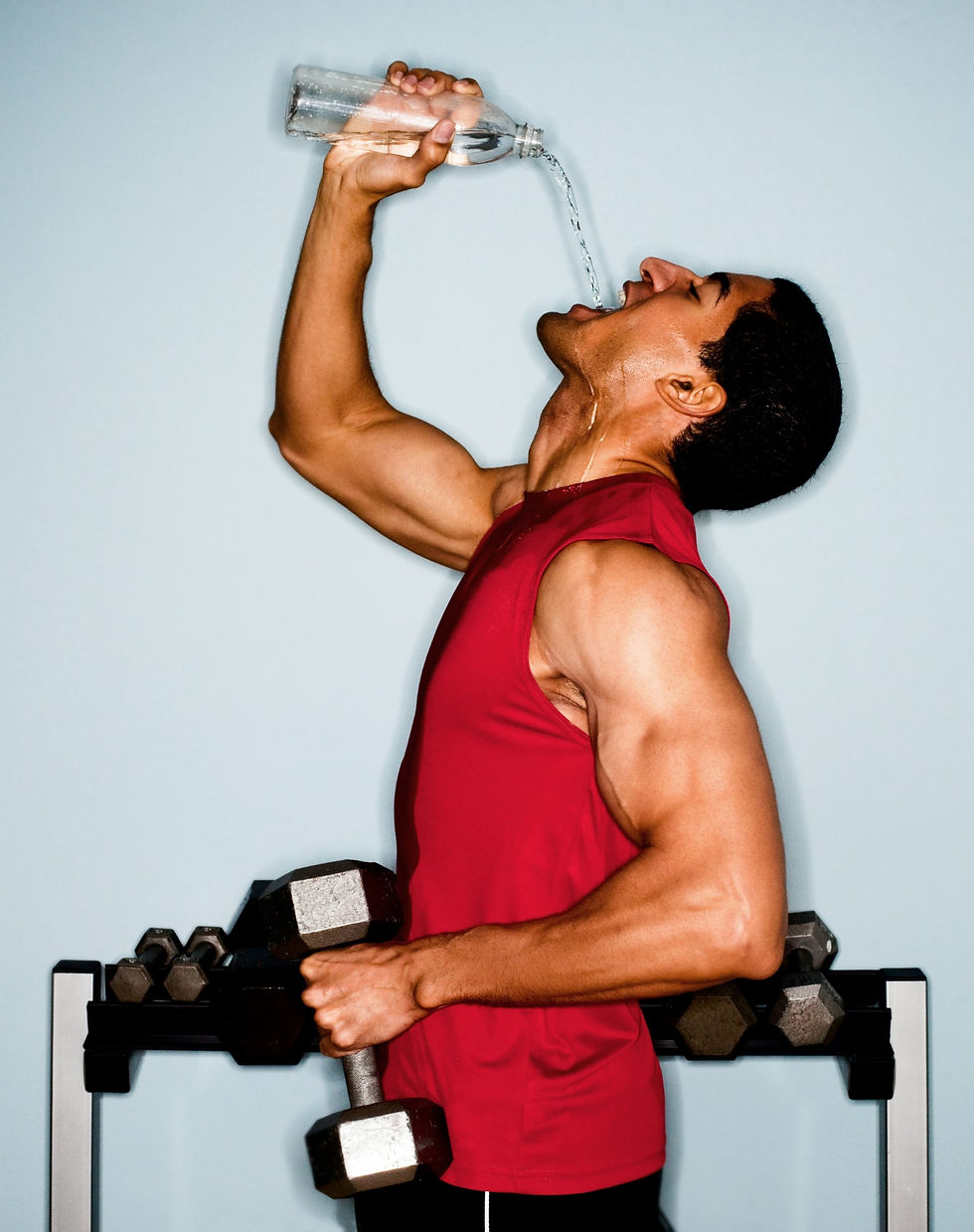
Water is the most important nutrient and a major constituent of the human body. Water is critical to balance all the body’s systems, including the brain, heart, lungs, kidneys and muscles. It regulates body temperature, lubricates joints and carries waste products out of the body. It also helps transport nutrients, provide energy and keep us healthy.
In addition to losing water through urine and feces, our body is continually losing water in the form of sweat through the skin and through the air we exhale. To replace these losses and promote good health and exercise performance, it is often recommended to drink fluids regularly throughout the day.
Athletes constantly risk dehydration because there is a lot of fluid loss during training, practice or game. Water and electrolytes are lost in sweat. Dehydration causes fatigue, muscle cramps, headache, lightheadedness and rapid heartbeats. It not only negatively alters performance but can also cause serious complications. Even a slight amount of dehydration in an athlete can cause significant decrease in athletic performance physically and mentally.
If an athlete is not adequately hydrated, it does not matter what fuel they are putting into their bodies, they will not be able to perform well. Proper hydration is as important as healthy food choices for athletes. Athletes should not wait to feel thirsty to drink water because exercising often masks the feeling of thirst. The ACE (American Council of Exercise) suggests:
drinking at least 8 ounces / 240 ml of water 20 to 30 minutes before exercise or during warm ups.
7 to 10 ounces / 200-300 ml every 10 to 20 minutes during exercise.
8 ounces / 240 ml no more than 30 minutes after exercise.
Athletes may need to measure how much fluids they lose during exercise and rehydrate accordingly.
Hydration before exercise helps the athlete to start physical activity with normal electrolyte levels.
Hydration during exercise prevents excessive dehydration and electrolyte imbalances that could hinder athletic performance.
Hydration after exercise helps to fully replenish any fluid or electrolyte deficit.
Sports Drinks vs Energy Drinks:

Sports drinks are advertised to replenish glucose, fluids, and electrolytes (sodium, potassium, magnesium, calcium) lost during vigorous exercise. It is also used to enhance endurance. Some are fortified with vitamins associated with increased energy. Sports drinks contain carbohydrates in the form of sugar (e.g., glucose, high-fructose corn syrup, sucrose) or contain no sugar and are flavored instead with low-calorie sweeteners. The specific amount of sugar and electrolytes in sports drinks is intended to allow for quick hydration and absorption.
In an intense long duration exercise program, the body is depleted of carbohydrates and electrolytes such as sodium and potassium. Water cannot replace these nutrients, which is why some people rely on sports drinks instead. Although sports drinks are a big part of athletics and big business around the globe, they are probably unnecessary for most people. If one chooses to drink these beverages it is important to first read the ingredient label and check the composition of sports drinks. Overconsumption and overdependence should also be avoided.
Energy drinks may be easily confused with sports drinks. However, they are a different product entirely. They contain extremely high levels of sugar, caffeine and other stimulants. Consumption of energy drinks can lead to dependence and addiction. In addition, energy drinks may or may not have the required amount of carbohydrates recommended for athletes.
Sports drinks are often high in calories from added sugar and some may contain high levels of sodium. Serving size is also important since one bottle may contain several servings. In addition, studies have shown increases in dental erosion in adolescents consuming these drinks. Unless performing a long duration of high-level sports, sports drinks are not required for fluid replacement. Water is sufficient, easily available and accessible and absolutely calorie-free. Work with a healthcare provider or a registered dietitian to determine your hydration needs.

Comments